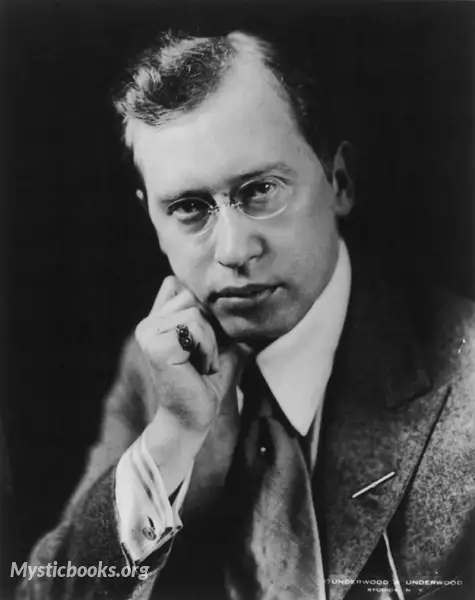
Timeline
Title
Country/Nationality
George Sylvester Viereck
George Sylvester Viereck was a German-American poet, writer, and pro-German propagandist.
Sylvester's father, Louis Viereck, was born in Berlin in 1851, to the unmarried actress Edwina Viereck. It was rumored that Louis was the son of Kaiser William I, but Louis was acknowledged as a son instead by Louis von Prillwitz, a son of Prince Augustus of Prussia. In 1870, Louis joined the Socialist Party, and was banished from Berlin eight years later when Bismarck outlawed the party. In 1881 he became editor of a socialist periodical in Munich. In 1884 he was elected to the Reichstag, but in 1886 was imprisoned for attending Socialist Party meetings. He left the Party upon his release from prison.
Sylvester's mother, Laura Viereck, was born in San Francisco to William Viereck, a younger brother of Edwina Viereck. William was a revolutionary who fled Germany in 1849 and operated a German theatre in San Francisco. After William's death in 1865, his wife returned to Germany with their children. In 1881, Laura married her first cousin Louis. At her urging, Louis emigrated to the United States in 1896, and Laura followed with Sylvester some months later. Louis became an American citizen in 1901, but he returned to Germany in 1911.
George Sylvester Viereck was born in Munich on 31 December 1884. Sylvester began writing poetry when he was eleven. His heroes were Jesus Christ, Napoleon Bonaparte, and Oscar Wilde. While still in college, in 1904, George Sylvester Viereck, with the help of literary critic Ludwig Lewisohn, published his first collection of poems.[5] He graduated from the College of the City of New York in 1906. The next year his collection Nineveh and Other Poems (1907) won Viereck national fame. A number were written in the style of the Uranian male love poetry of the time. The Saturday Evening Post called Viereck "the most widely-discussed young literary man in the United States today".
Between 1907 and 1912, Viereck turned into a Germanophile. In 1908, he published the best-selling Confessions of a Barbarian. Viereck lectured at the University of Berlin on American poetry in 1911. For his support of Germany and pacifism, Viereck was expelled from several social clubs and fraternal organizations, and had a falling out with a close friend, poet Blanche Shoemaker Wagstaff.
During World War I he edited a German-sponsored weekly magazine, The Fatherland with a claimed circulation of 80,000. In August 1918, a lynch mob stormed Viereck's house in Mount Vernon, forcing him to seek refuge in a New York City hotel. In 1919, shortly after the Great War, he was expelled from the Poetry Society of America.
He had two sons, George and Peter. George was killed in action during the Second World War. His other son, Peter Viereck, was a historian, political writer and poet. A 2005 The New Yorker article discusses how the younger Viereck both rejected and was shaped by the ideologies of his father.
Books by George Sylvester Viereck

The House of the Vampire
The House of the Vampire is a 1907 novella that is a very unusual vampire story. A young writer comes under the powerful influence of a mysterious older master, who seems to have left a trail of ruined proteges in his wake. The story is as much about...